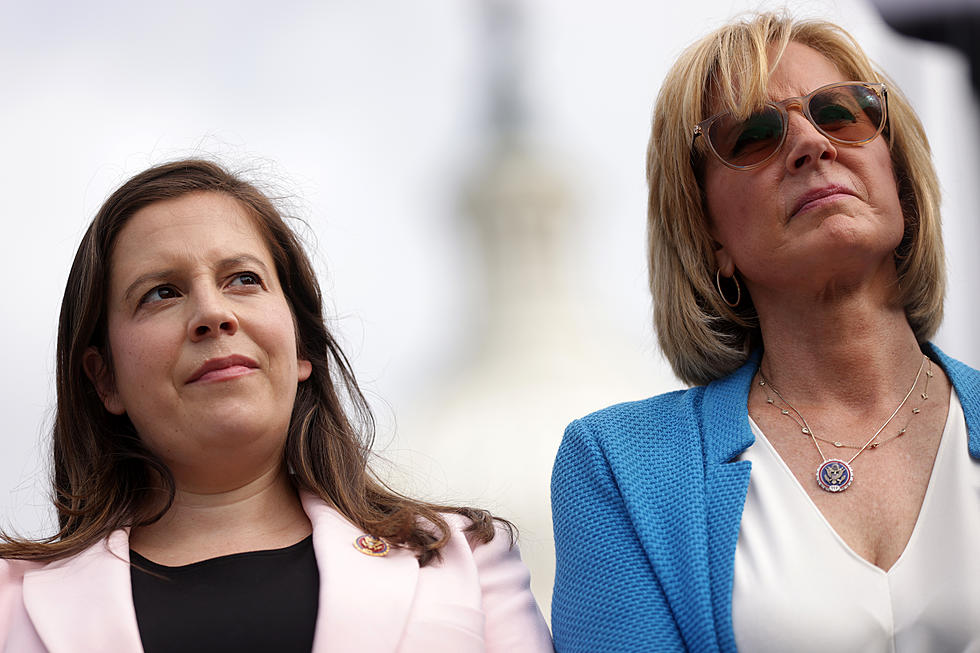
Brindisi’s ‘Tenney Act’ Would Reform Money in Politics
Assemblyman Anthony Brindisi released a campaign finance reform push today tied directly to what he calls "a potentially candid mistake" by Claudia Tenney when she said she was unaware of an $8,500 donation she received tied to what opponents say is dismantling consumer internet privacy.
Brindisi detailed this plan as the TENNEY ACT, partly spurred last March when a vote to kill Obama-era regulations designed to protect internet privacy passed Congress, a bill Tenney voted for. "Corporations, like Spectrum and Comcast, have long opposed internet privacy because they desperately need access to your private data to make more money," according to the Brindisi campaign.
“I am actually going to give Congresswoman Tenney the benefit of the doubt on her vote to kill internet privacy protections for area consumers and kids alike,” said Assemblyman Anthony Brindisi. “Let’s say Congresswoman Tenney really ‘did not know’ she got a huge $8,500 check from the internet service companies, like Spectrum, that needed her vote to sell our privacy—well, my new plan would help prevent this from happening in the future by forcing federal politicians who take big corporate money to sign a special document saying they double-checked and actually acknowledge all their corporate donors.”
Brindisi says he does not take corporate money, so he does not run into this kind of issue. "But for politicians who take corporate money, like Claudia Tenney, her possible mistake of ‘not knowing’ she got $8,500 would be remedied under the Tenney Act," he said.
Brindisi says his 'Tenney Act,' is also being called the “Tracking Every New Nickel Explicitly Yourself Act” and it would help politicians remember when they get big corporate donations by mandating they sign a document acknowledging that they know who their corporate donors are each and every quarter. Brindisi says this would allow the public to better judge whether or not certain votes are tied to certain donations, too.
“The truth is, money in politics is a recipe for corruption and that’s why I do not take a dime of corporate money, but for politicians who do, like Claudia Tenney, the Tenney Act can act as a sort of insurance policy on accountability for those who might simply forget where thousands of dollars is coming from,” noted Brindisi.
On April 3rd, after Congress voted in approval, the president signed what’s known as ‘The Internet Privacy Bill,’ which under the rules, allow information such as one’s SSN, email contents, browsing history, precise geo-location, app usage, and health and financial information to be monetized by ISPs like Spectrum/Comcast, Verizon, AT&T and others. - Brindisi Campaign
Shortly after its passage, polls showed that about 70 percent of Americans, Republicans and Democrats alike, opposed this action. Brindisi later sponsored New York State Assembly legislation to prohibit Internet providers in New York from raising revenue by selling highly personal information to the highest bidder.
Claudia Tenney's campaign responded by calling Brindisi's plan desperate. "Anthony Brindisi is desperate and his hypocrisy is astounding," said Tenney campaign manager Raychel Renna. "For years Brindisi took corporate money from the Albany swamp and now Nancy Pelosi, leftwing billionaires and dark money super pacs are trying to buy him a seat in Congress so he can corrupt Washington just like Albany," she said.
Brindisi says once elected to Congress, he will begin efforts to implement the Tenney Act as part of larger campaign finance reforms that need to be addressed, like combatting the Citizens United decision.
Brindis and Tenney will face-off in a televised debate on Thursday night at 7 p.m. from Colgate University. The debate will be televised on Spectrum Cable News.
More From WIBX 950









